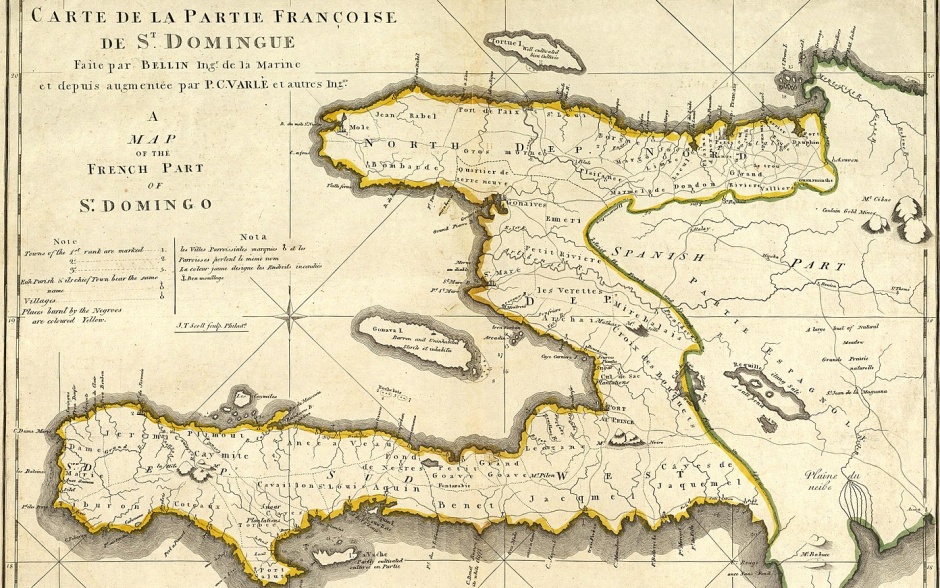On the night of the 23rd of August in 1791, men and women, victims of the slave trade from Africa, revolted against the slave system in Saint-Domingue, modern day Haiti.
 A map from the 18th century of the French part of the isle of Saint Domingue (Haiti). / Public Domain.
A map from the 18th century of the French part of the isle of Saint Domingue (Haiti). / Public Domain.
The International Day for the Remembrance of the Slave Trade and Its Abolition commemorates those who fought for freedom and teaches about their story as the abolition of slavery continues still today.
The 23rd of August, chosen by the United Nations, was significant in the history of the abolition of the transatlantic slave trade. On the night of the 23rd of August in 1791, men and women, victims of the slave trade from Africa, revolted against the slave system in Saint-Domingue, modern day Haiti.
The uprising led entirely by the slaves, lasted for 13 years. In the end the French colony got its independence, resulting in freedom and independence for the slaves.
The slave trade lasted for more than 400 years and enslaved over 15 million people. The wealth generated by the transatlantic slave trade supported the creation of industries and institutions in modern North America and Europe. Profits also funded the creation of fine art, decorative arts, and architecture, enjoyed by the elite and high class of society.
231 years later, we may ask ourselves what has changed? Victims of forced labour continue making goods we purchase in the West. Millions are forced to sell their bodies in Europe. The event continues to inspire and encourage those battling for a more equal society today; whether it be a form of modern day slavery, racism, or other forms of social injustice. Protesting, or revolting, may be what is needed to transform society, still today.
Taina Moisander, member of the European Freedom Network’s (EFN) Operations team and also does Campaigning and mobilizing efforts for anti-human trafficking with Operation Mobilisation.
The European Freedom Network has its annual 'Bridge' conference from 10-14 October in Sarajevo. Learn more.
This article was first published by EFN and republised with permission.

Las opiniones vertidas por nuestros colaboradores se realizan a nivel personal, pudiendo coincidir o no con la postura de la dirección de Protestante Digital.
Si quieres comentar o